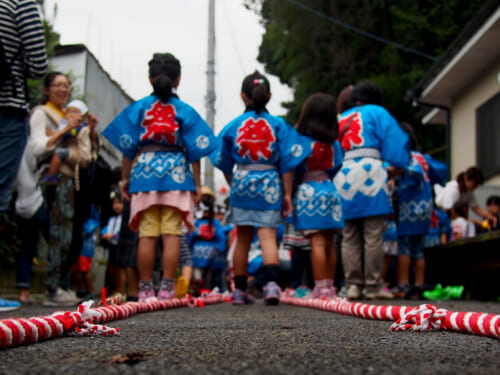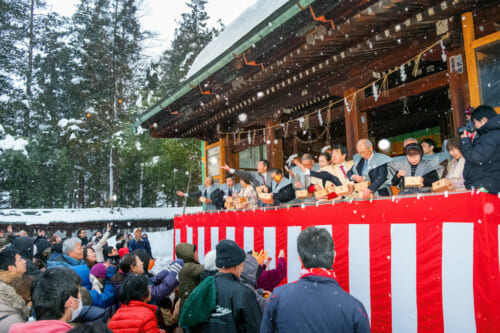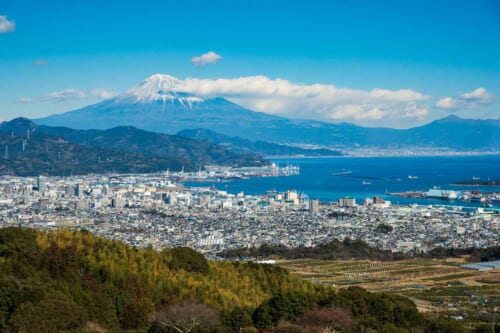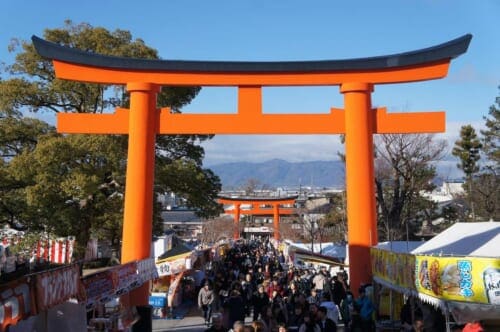In most cases, an internship is an essential part of studies or training. So-called mandatory internships are intended to help us determine which path we would like to take in our professional future by applying the theory from our studies in practice and gaining our first professional experience. But whether it is a mandatory internship or not, there are usually no limits when choosing the right internship. So, why not do an internship in Japan?
In addition to an insight into a vocational world, an internship abroad also offers you the opportunity to taste the world of work of another culture and gain international experience. Here are some tips and tricks for finding an internship in Japan.
- Why Would an Internship Be a Good Thing to Do in Japan?
- How to Get an Internship in Japan?
- What Are the Requirements for an Internship in Japan?
- What Kind of Visa Do I Need for an Internship in Japan?
Why Would an Internship Be a Good to Do in Japan?
If you don’t necessarily have to complete a mandatory internship, you will probably ask yourself what a voluntary internship is good for. For example, why would you go through the stress of applying, possibly in a foreign language, for an internship in Japan? Here are some reasons:
- Gain First-Hand Work Experience: An internship offers you the opportunity to gain first-hand work experience. If you have not yet worked part-time, an internship is the best way to gain insights into the working environment.
- Applying What You Learned in School: We all know that practice is always different from theory. Therefore, it is good to apply what you have learned from your studies or training in a real-life work environment.
- Reveal What Your Strengths and Weaknesses Are: An internship helps reveal your strengths and weaknesses. For example, can you work under time pressure? Are you able to multitask? Find out during an internship.
- Spend Time Being Curious: Although an internship can help point the way to your professional future, it can also reveal what you don’t like. Have a look at different areas and if you don’t like them, don’t worry! Mistakes are allowed, and an internship is limited in time. You don’t sign a permanent contract.
- Network: You can make helpful contacts and expand your network.
So, now that you have some pros of an internship in Japan let’s see how you can get an internship in Japan.
How to Get an Internship in Japan?
Let’s get to the good news first: Yes, getting an internship in Japan is possible.
The internship culture of Japan differs fundamentally from the one I know in Germany. An internship in Japan usually only lasts a few days or a few weeks if it is a summer internship. Also, internships in Japan are often part of the job hunting (就活, shūkatsu) of Japanese students and include seminars to get to know the company structure. As we know from our domestic internship positions, an internship with the possibility of taking on tasks or projects is not the norm in the Japanese internship culture.
So, if you are looking for an internship similar to your international internship culture, you should look up companies that also operate internationally. You will mainly find what you are looking for in the automotive industry.
But now the question arises: How do you find such an internship in Japan?
Find an Internship Position in Japan Online
The most common way to find an internship in Japan is to search for it online. Whether directly or on the career pages of your preferred company or with the help of special websites on which internship positions in Japan are advertised, you will find what you are looking for on the World Wide Web. You can also register for an internship program for a fee. In this case, an organization will help you get in touch with a Japanese company for an internship position.
Here are three websites where you can find internship offers from various companies in Japan:
- LinkedIn: LinkedIn is a social network specializing in business and career networks. In addition to hundreds of thousands of job offers worldwide, you can also search explicitly for internship positions using search terms. Numerous filter options are making the search for the right position very easy. Another advantage of LinkedIn is that you can connect with other people and be found by hiring managers.
- Glassdoor: In addition to full-time positions worldwide, you can also find internship opportunities on Glassdoor. Former and current employees can post reviews of the companies they have worked for or are still working for. These personal reviews can make it easier for you to find the right job by allowing you to find out whether the company is a good fit for you or not.
- Kopra: On Kopra, you will only find job offers related to East Asia. This website focuses on internship positions, but job offers are displayed here. In addition, companies can send you messages directly, assuming your registered applicant profile is up-to-date.
Companies often display internship positions directly on their career pages, which is why it is also worth looking at the Japanese websites of your preferred companies.
You can also register for a paid internship program with an external organization. The costs vary significantly from organization to organization. You’ll have an external contact person for the entire duration of the internship. You can find examples of such organizations here:
- CRCC Asia: Founded in 2006, CRCC Asia provides global internships in Japan, South Korea, Vietnam, China, and the UK. This organization collaborates with more than 1,000 host companies in different career fields, including “Green Technology, Sustainability, & Environmental.” Visit the CRCC Asia website for more information.
- AIP: You can register for internship programs in various Asian countries through the international organization “Asia Internship Program.” The internship positions in Japan are located at AIP in the greater Tokyo area. Unfortunately, a bookable language course is not possible with AIP. Visit the AIP website for more information.
- Internship in Japan: This organization offers various internship programs, including customized ones, in which you can select the duration and the starting date of your internship. In addition, Internship in Japan offers group programs, either lasting 2 months or 14 days, where you can complete the internship from home, thanks to remote work. Visit the Internship in Japan website for more information.
Of course, there is nothing wrong with speculative applications, with which you can be particularly successful with NGOs.
Are Internships in Japan Paid or Unpaid?
Japan has both paid and unpaid internships. If you are looking for an internship, then pay attention to the information that the company writes about the respective internship. These usually state whether the internship will be paid or not. Salary can vary widely. The city where the internship is located can also affect whether you receive a commuter pass or get assistance with accommodations from your company.
My experience has shown that the salary at companies in the automotive industry is somewhat higher than an internship in the cultural sector. The average intern salary in Tokyo is around 130,000 yen (approx. 1,000 euro).
Internships found through one of the external organizations often have salaries. Information on whether the positions offered are paid, or unpaid internships can usually be found in the program information.
How Long are Internships in Japan?
Like the salary, the duration of an internship in Japan can vary greatly. However, the internship usually lasts between 6 weeks and six months. You will more often get the option of a one-year internship at international companies.
Program-dependent internships, such as summer internships, tend to be shorter internship periods. Your working hours can also vary. While full-time internships are more common, there is sometimes an option for you to do a part-time internship.
What are the Requirements for an Internship in Japan?
An essential requirement for an internship in Japan is a valid visa. What kind of visa you need depends on the type of internship. In addition, the duration and whether it is paid or unpaid must be taken into account.
All other requirements depend on the companies or organizations you are applying to. For example, the legal age in Japan is age 20, so most organizations will require applicants to be at least 20 years old.
Internship positions advertised by international companies usually focus on required qualifications. Undergraduate studies are often needed, as is current enrollment at a university at the time of the internship.
The language skills you need also differ from internship to internship. In some cases, fluency in English is sufficient. In others, knowledge of Japanese at the N2 level is required.
What kind of visa do I need for an internship in Japan?
Which visa you need depends on the circumstances of your internship. Let’s take a look at the different visa categories that you may be eligible for:
| Paid | Longer than 90 days | |
|---|---|---|
| Tourist Visa | ✘ | ✘ |
| Cultural Activities Visa | ✘ | ✔ |
| Designated Activities Visa | ✔ | ✔ |
| Student Visa | ✔ | ✔ |
Tourist Visa
A simple tourist visa will suffice if your internship is unpaid and lasts less than 90 days. This won’t require you to apply for a Certificate of Eligibility (CoE) or apply for a visa at your local embassy or consulate.
This visa is suitable for all those who, for example, want to do an internship in Japan during the lecture-free period and can finance it out of their own pocket.
Cultural Activities Visa
The Cultural Activities Visa (文化活動, bunka katsudō) is suitable for all those whose internship is unpaid and lasts more than 90 days.
This visa is valid for three months, six months, or one year. The visa variant with a validity period of 3 years does not apply to interns.
For the Cultural Activities Visa, you need a CoE to be able to apply for the visa at your local embassy or consulate.
Designated Activities Visa
The Designated Activities Visa (特定活動, tokutei katsudō) is suitable for all those whose internship is paid and lasts from a minimum of 3 months to a maximum of 1 year.
This visa’s validity period is also three months, six months, or one year. The visa variant with a validity period of more than one year does not apply to interns.
For the Designated Activities Visa, you need a CoE to be able to apply for the visa at your local embassy or consulate.
Student Visa
If you are studying as an exchange student at a Japanese university, your student visa is sufficient for an internship. However, there are a few things to consider here too.
The standard student visa (留学, ryūgakusei) allows you to do an unpaid short-term internship, which lasts no longer than a day or two.
Suppose you would like to do a paid internship that does not exceed 28 hours a week. In that case, you need the additional “permission to pursue other activities than those permitted by the previously granted residence status” (資格外活動許可, shikakugai katsudō kyoka). The easiest option is to apply for this when you arrive at the airport.
If you want to do your internship for more than 28 hours a week in addition to the university, then you need another permission. Namely, “permission to work more than 28 hours a week” (1週について28時間を超える資格外活動許可). This permission assumes that you are sufficiently finished with your courses at university so that your university performance cannot be affected by the internship.
An Internship in Japan: A Unique Experience
From my own experience, I can only advise everyone to take the plunge and complete an internship in Japan. During my time as an exchange student, my path led me through a spontaneous application to an unpaid internship in a Japanese NGO and later to a paid, one-year internship in an international company in Tokyo.
So, take advantage of the career sites of international companies, visit websites where internship positions are displayed, and don’t hesitate to send applications from your side. An internship in Japan can only be beneficial for your professional future. Good luck!










No Comments yet!